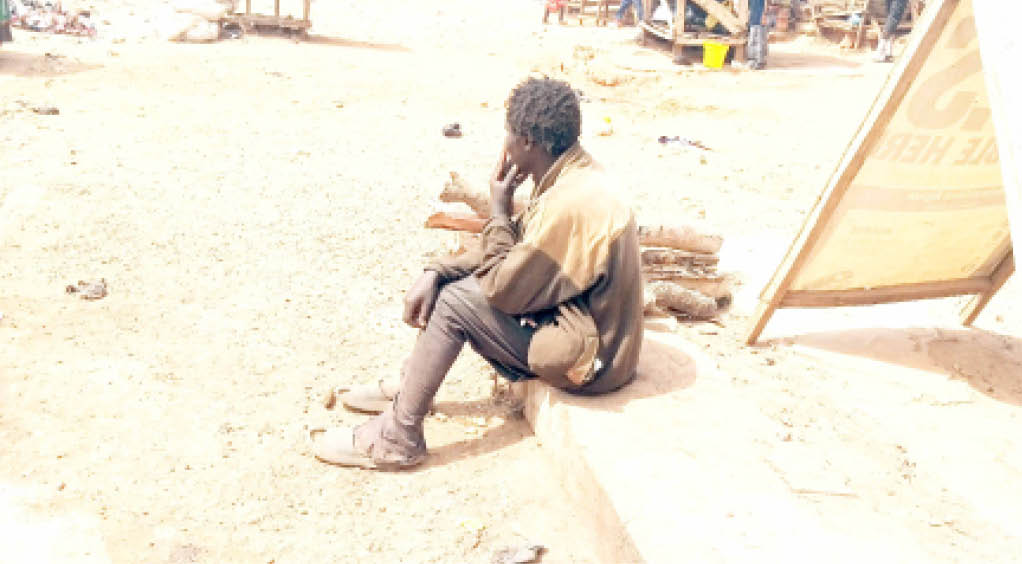It is believed that during the harmattan, when the Jos cold is at its peak, the condition of mentally disturbed persons often exacerbates. Jos is the coldest city in the country.
And with the level of the current cold in the Tin City, which has intensified, most people have engaged in varied means to protect themselves against it, as the weather causes different feverish conditions and other attendant illnesses and impacts.
- ALERT: Ponmo that can cause deadly diseases imported into Nigeria – NAFDAC
- NiMet alert public, airline operators on dust haze, low visibility
Jos is known to be the coldest place in the country, and from December through January to February, the cold intensifies and people take all kinds of preventive measures to keep warm and keep healthy.
From January till date, the temperature in Jos has been alternating between 17 and 12 degrees Celsius, sometimes equating that of other colder countries around the world.
As a result, people wear thick clothes — jackets, sweaters, hand gloves and caps among other body coverings – to keep out the cold.
And in the offices or at home, people heat water to drink, wash hands with warm water and take bath. In fact many stay for days without taking a bath.
However, mentally retarded persons appear to react indifferently to the Jos chill.
Our correspondent who observed some of them in the city discovered that they still went about in the rags they often wore.
While people wear thick clothes to keep themselves warm, the mentally retarded remained skimpily dressed, and they hardly showed any sign of feeling the harsh cold.
It is common to see them sleeping under bridges, by the roadside, around refuse dumps and other open-air places without any measure to keep themselves warm. They are hardly seen shivering or expressing any outward sign of feeling cold. Besides, they are still spotted picking food from the ground or dustbins to eat.
Many find their indifference to the situation surprising. Daily Trust sought the views of medical experts on the ‘mystery’.
A consultant psychiatrist and Head of the Psychogeriatric Unit at the Jos University Teaching Hospital (JUTH) and senior lecturer at the university, Dr Chris Piwuna, said the reason for the indifferent reaction of mentally retarded people to the Jos cold is very simple.
He explained that since they have been exposing themselves to the cold for long, their bodies have developed resistance to it.
According to him, if someone indulged in something for long, their bodies would develop some kind of immunity to the situation and they would become resistant to the situation.
Dr Piwuna said for instance, despite all the noise about the Jos cold, people from Europe, America and other cold regions are still going about wearing knickers because their bodies are already immune to cold, so to speak, because where they came from is much colder than Jos.
He also cited examples with people drinking water from wells or other unhealthy sources but who hardly fell ill, adding that should someone used to drinking bottled water or clean water try that he/she would end up in hospital.
Also commenting, a senior lecturer with the Department of Psychiatry at University of Jos and Medical Director of Netwealth Center for Addiction Management and Psychological Medicine, Dr Okonoda Kingsley Mayowa, said there is no health without mental health, and that mentally retarded people need societal assistance irrespective of the resistance to some health issues.
He defined mental health as a state of wellbeing in which the individual can actualize his potential, cope with normal stresses of life, work productively and make contributions to his society. But those that have mental challenges are not productive and cannot contribute to societal wellbeing.
According to him, mental health problems are also a major cause of disability among non-communicable diseases.
“In economic terms, mental illness presents a huge economic burden,” he added.
In the United States, for example, the indirect cost associated with mental illness is estimated to be in the range of $79 billion of which $63 billion is due to loss of productivity from illness.
The World Health Organisation (WHO) estimated that mental health issues cost between 3-4% of the gross national product in countries of the European Union.
“Only a third of people who need treatment are able to access such in high-income countries. As low as only 2% in low and middle-income countries.
“The state of Mental Health Sector in Nigeria reveals that mental health services are largely concentrated in the tertiary health facilities which are the eight Federal Neuropsychiatric Hospitals, Teaching Hospitals and some Federal Medical Centres.
“There are also a few state-owned neuropsychiatric hospitals, some state-owned specialist hospitals and some private facilities.
Civil society/non-governmental and some faith-based organisations also render mental health services.
He called on all and sundry to join hands together in any way they can to assist those going through mental stress before it degenerates, adding that even those who are already deranged can still be helped.

 Join Daily Trust WhatsApp Community For Quick Access To News and Happenings Around You.
Join Daily Trust WhatsApp Community For Quick Access To News and Happenings Around You.


